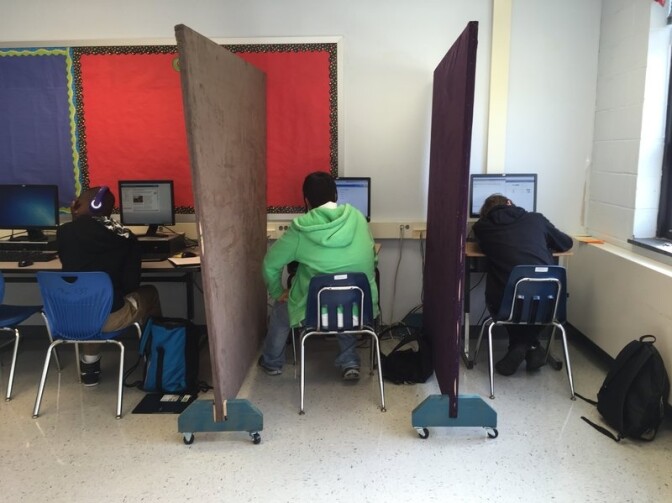Take Two translates the day’s headlines for Southern California, making sense of the news and cultural events that affect our lives. Produced by Southern California Public Radio and broadcast from October 2012 – June 2021. Hosted by A Martinez.
How to help students navigate the darker side of online

It's hard enough when kids have to hear mean comments in the hallways at school, but now those comments can follow them all the way to their online profiles.
With more students connected to the internet than ever, schools are forced to confront the problem of cyber bullying.
That includes Jurupa Unified School District, which began offering digital training lessons to kids after thousands of its students received netbooks from the schools this year.
"We really wanted to demonstrate to our parents and community that we are committed to teaching the students to use these devices in enriching and responsible ways," said Joshua Lewis, director of Education-Information technology at Jurupa Unified.
He told Take Two's A Martinez that schools need to, "create a district-wide culture of digital literacy and appropriate digital citizenship."
Lewis said that the classes make sense for the modern student. This generation is the first to grow up with constant online access. Helping them navigate the waters is a key responsibility for educators.
"We teach students a variety of things in education. Sometimes it's quantum physics and not all students can relate to that. But when it comes to digital citizenship and these lessons, it mirrors their daily lives and the reality of their futures."
To hear the full conversation, click the blue player above.


